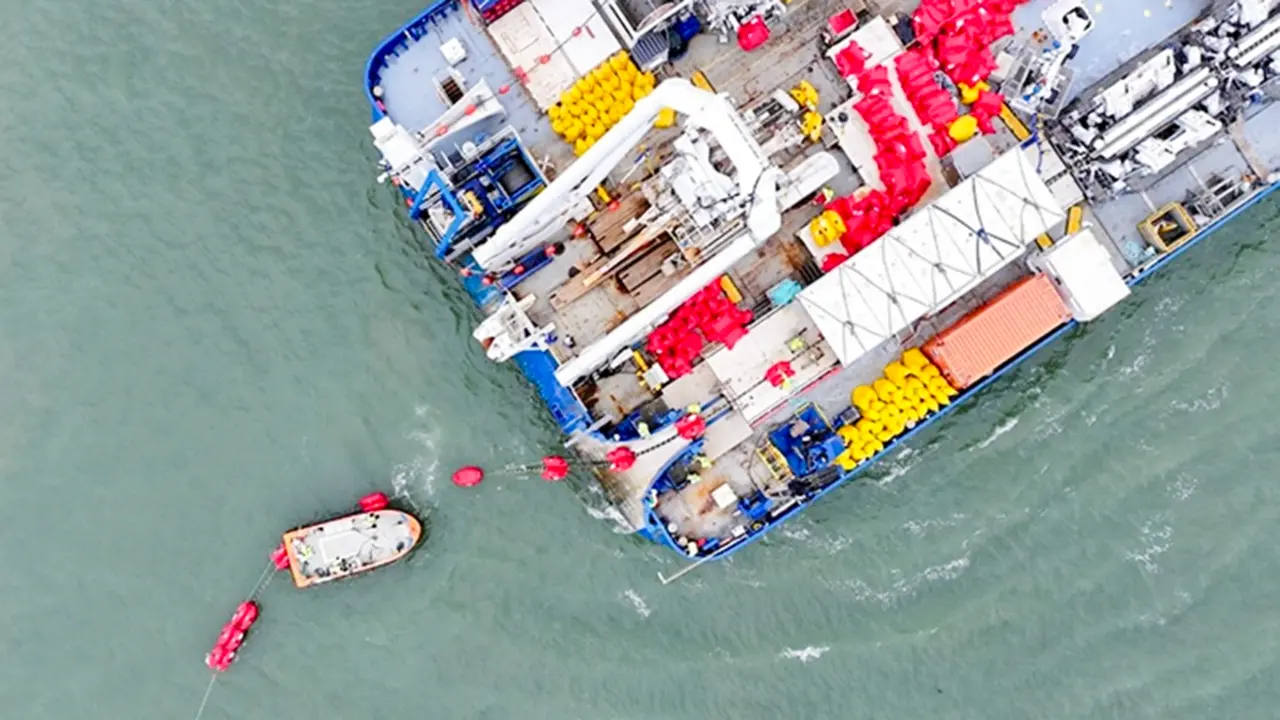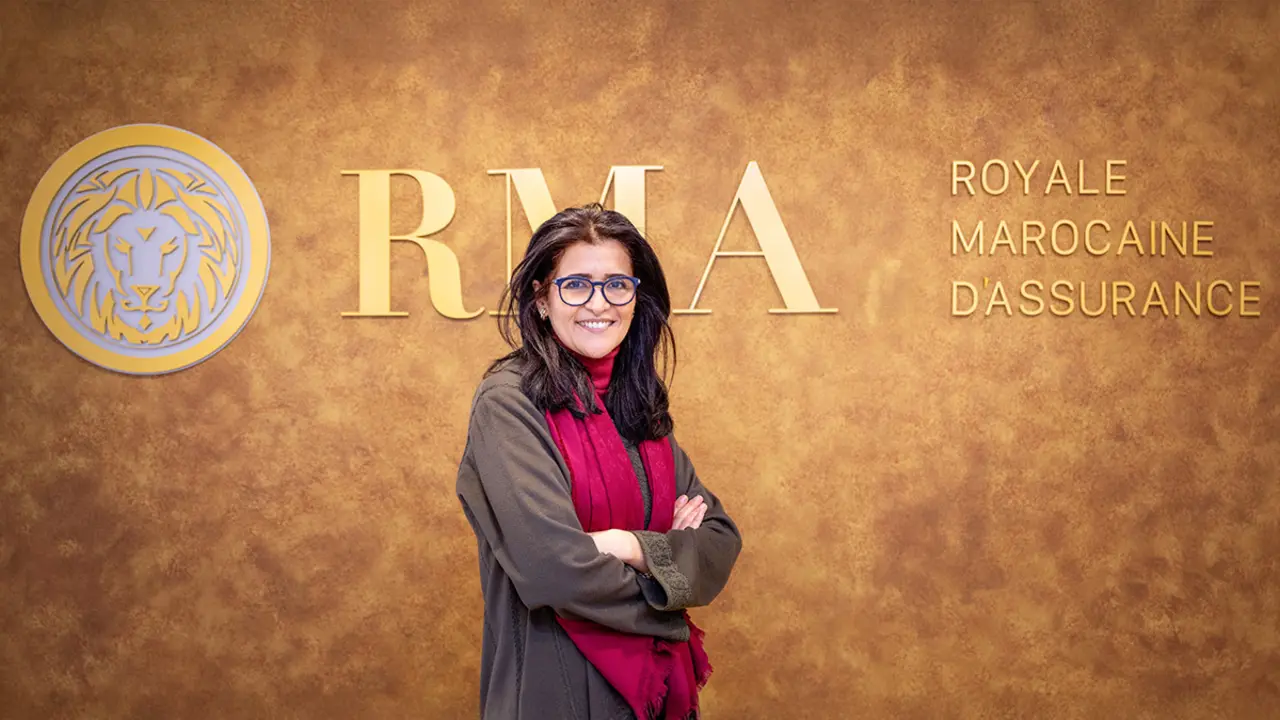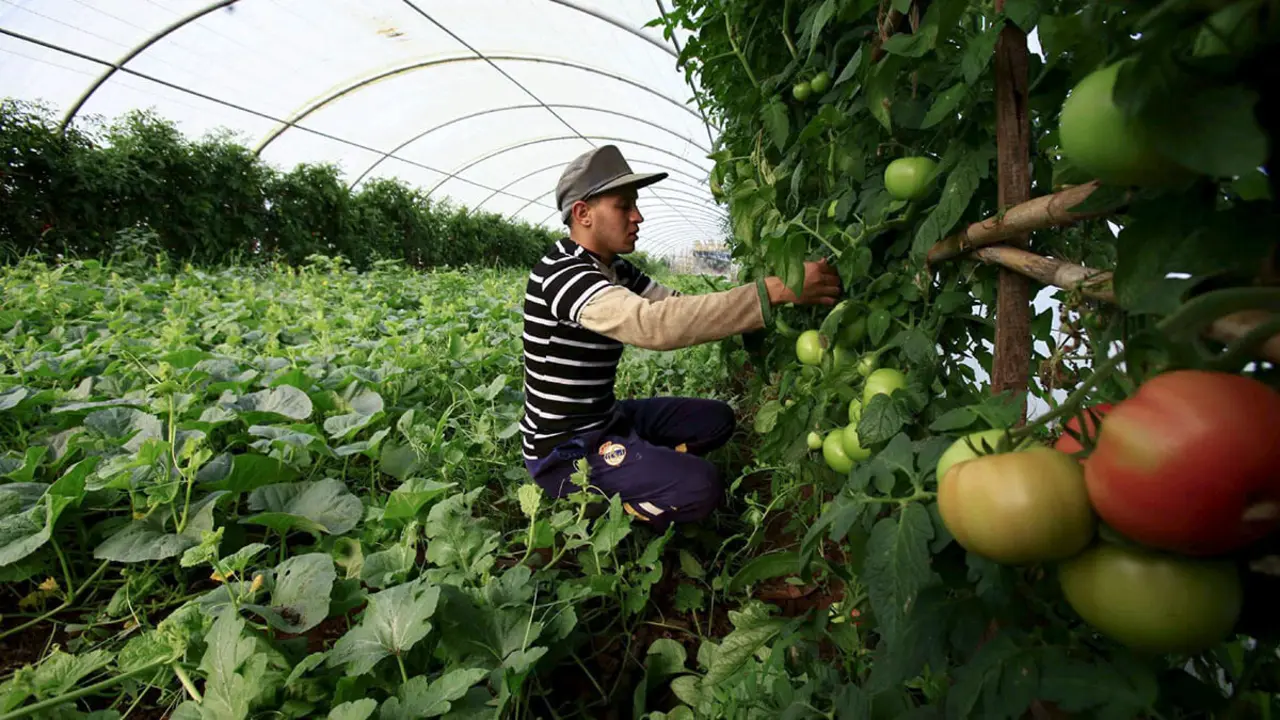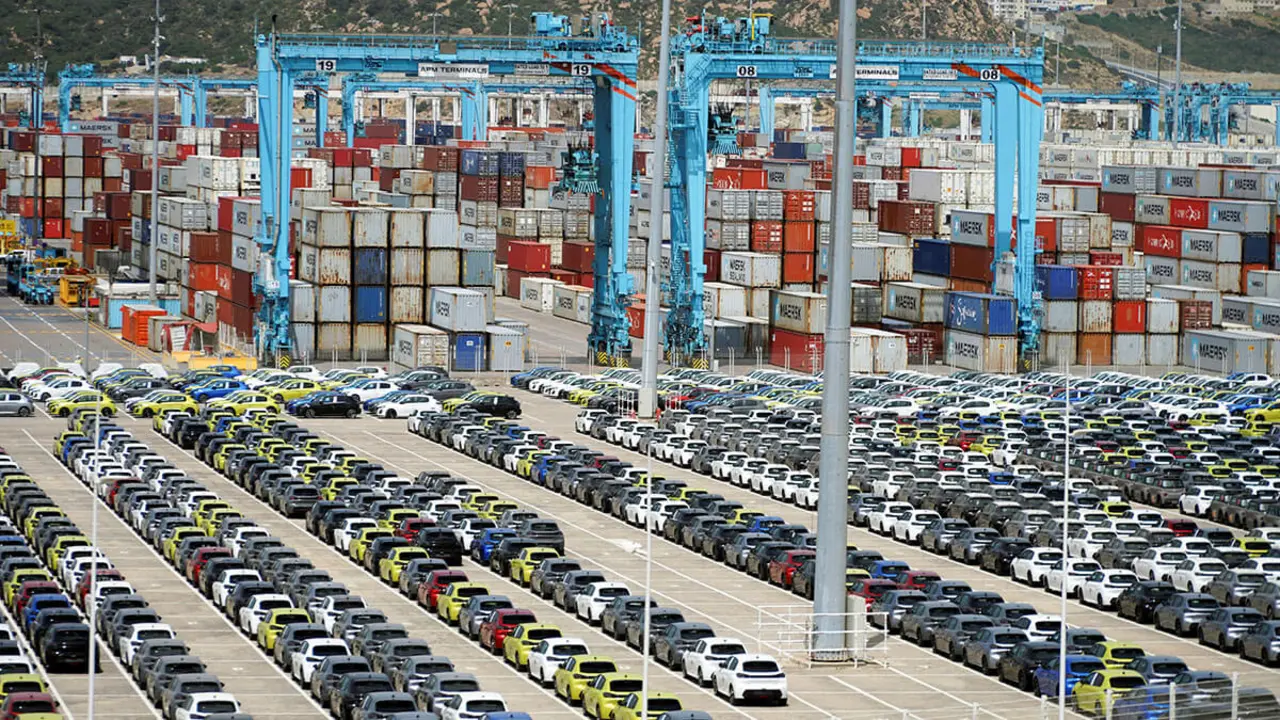The King closes the 4th Summit on the Internationalisation of Spanish Companies
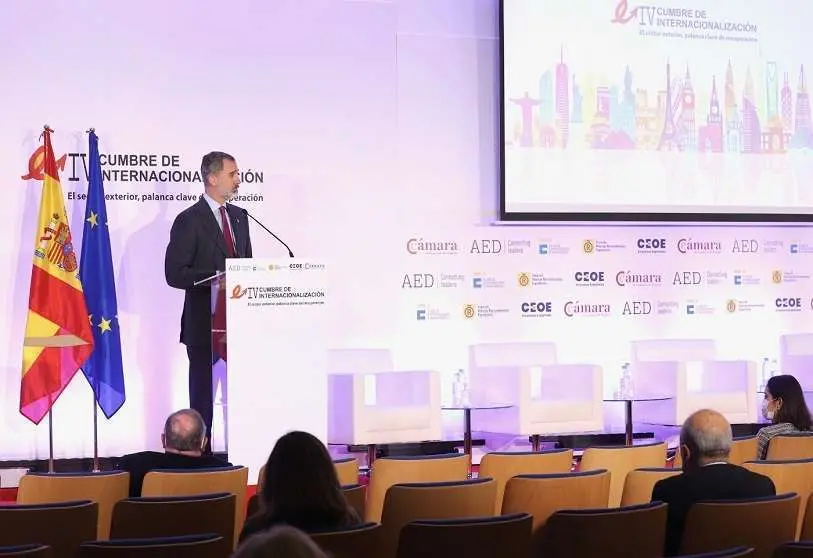
Today the 4th Summit for the internationalisation of Spanish companies took place at the Chamber of Commerce, under the title: "The foreign sector, a key lever for recovery. The event, which was chaired by His Majesty King Felipe VI, was convened by various Spanish business organisations - the Spanish Chamber of Commerce, CEOE, the Forum of Renowned Spanish Brands, the Spanish Exporters and Investors Club and the Spanish Association of Managers - and was also attended by the Minister of Industry, Trade and Tourism, Reyes Maroto, among other authorities.
In his message at the end of the summit, the King emphasised the "courage and bravery shown by companies when it comes to going abroad", and that "given the risks involved in the process, any help from the public authorities will be little". Felipe VI pointed out that there is no alternative to internationalisation, and that this must go hand in hand with sustainability and digitalisation. His Majesty also highlighted the values "of sacrifice, of struggle, of perseverance and of facing up to the challenges that lie ahead".
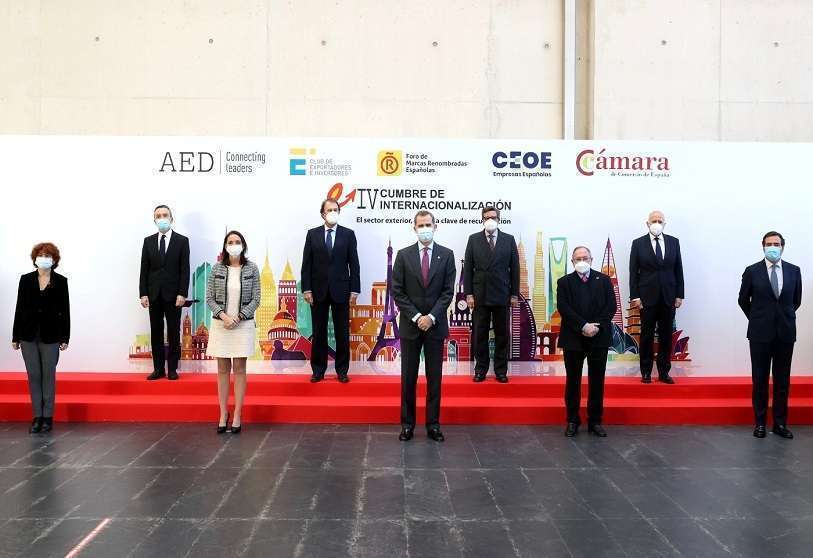
Reyes Maroto, for his part, pointed out the good evolution of the internationalisation of Spanish companies in barely a decade, also driven by the crisis of 2008. The minister highlighted the geographical diversification of the international presence and the increased weight of foreign trade in Spanish companies. She also pointed out two of the measures proposed by the Government to encourage this internationalisation: the "Juntos más lejos" platform, a joint initiative of the CEOE, the Chamber of Commerce and the ICEX, and also a 2 billion euro fund to help finance those companies that decide to make the leap abroad.
Before the joint declaration of the five organisations that participated in the summit, each of the representatives set out their vision of the importance of business internationalisation, even more so in this context of crisis caused by the COVID-19.
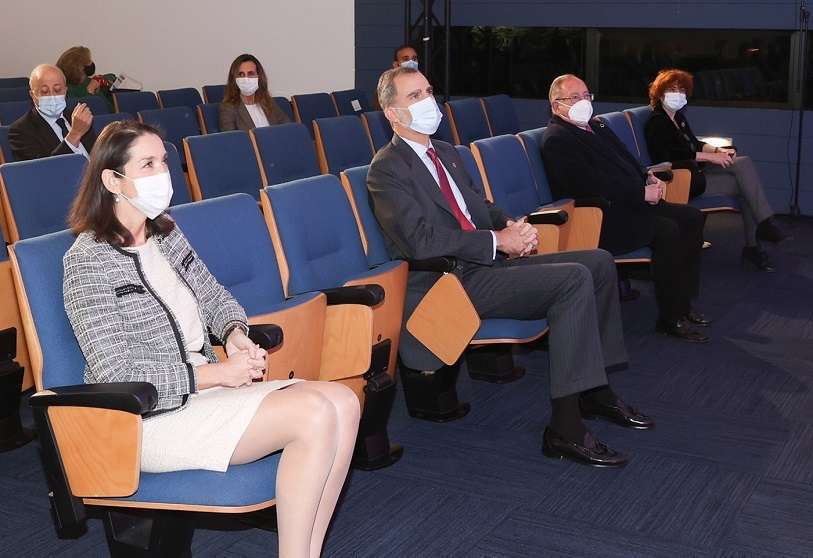
The President of the Spanish Chamber of Commerce, José Luis Bonet, highlighted the role of SMEs in the internationalisation of Spanish companies, and how they have made a significant leap forward in the last decade. However, he pointed out that it is necessary to "take another step forward" in this external presence, and that the European Funds are key to this. He pointed out the importance and speed with which the European Union has acted, and that Spanish companies must take advantage of this momentum to gain presence and competitiveness abroad.
Antonio Garamendi, President of the CEOE, highlighted several key points: the high percentage of the service sector, the small size of SMEs, which makes it difficult for them to go abroad, "unhealthy" public accounts and low investment in R&D, barely 1.3% when the figure should be three times higher. He also stressed the need for public-private co-operation, without which none of the above is possible, and the importance of confidence and stability.
For the president of the Forum of Renowned Spanish Brands, Ignacio Osborne, the changes must go in the direction of added value, developing competitive advantages other than price, such as branding, design and innovation. Another of the aspects he pointed out is the urgency of simplifying bureaucracy and legislation to make it easier for companies to internationalise.
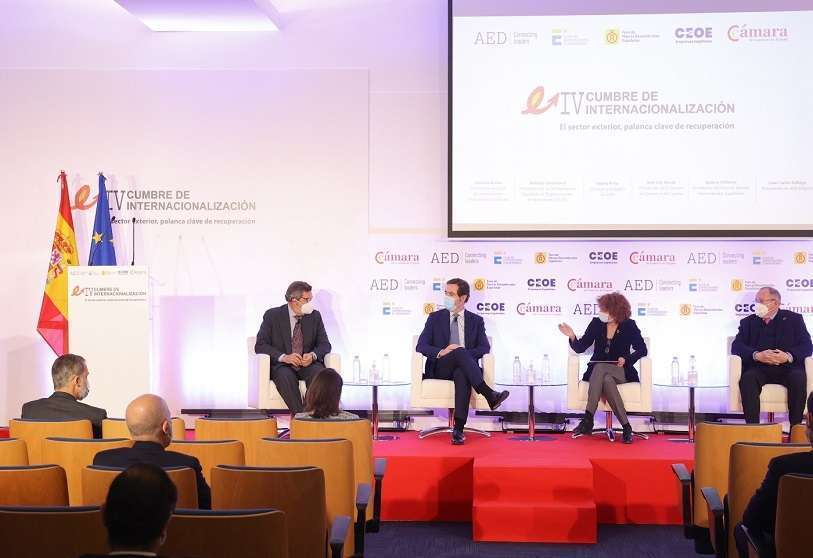
Antonio Bonet, president of the Spanish Exporters and Investors Club, brought a significant figure to the debate: of the more than three million companies in Spain, only 53,000 are considered regular exporters, that is to say, they have been doing so for four years. In this respect, he pointed out the importance of opening subsidiaries and branches abroad, applying a "non-penalising" tax system.
Finally, the President of the EDA Madrid, Juan Carlos Gallego, compiled some of the questions already raised during the round table. He also highlighted the experience of Spanish executives who are already present in many multinationals around the world, and who represent an added value for Spanish companies seeking to internationalise.
In the Joint Declaration, he highlighted different aspects to be promoted and improved in order to boost internationalisation, such as taking a qualitative leap in the degree of sophistication and differentiation of the Spanish offer; strengthening the country brand so that it contributes more value to companies in their international expansion; establishing a true culture of collaboration, both public-private and within the private sector, and favouring the generation of synergies between the different public administrations to avoid the dispersion of efforts, as well as strengthening their collaboration so that internationalisation becomes a State policy.
he entire summit was marked by KPMG's study of the internationalisation of Spanish companies, the challenges they face, and the new scenarios that the coronavirus has posed to make this possible. Among the aspects highlighted by the study, the fall of the United Kingdom by almost 25% stands out as a scenario for increasing the presence of Spanish companies.

